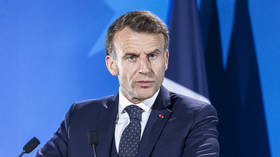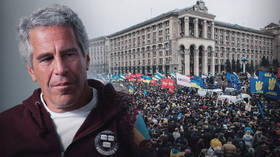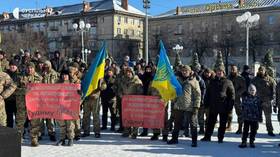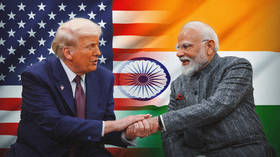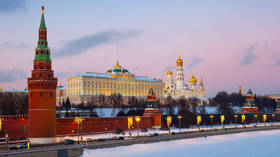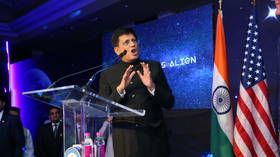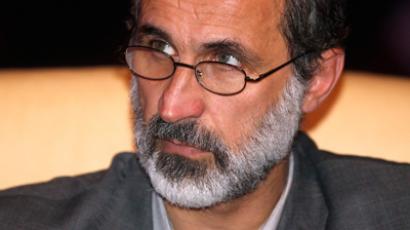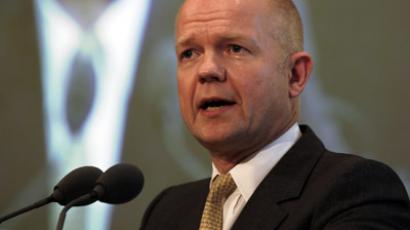Syrian opposition to pick PM, form own government
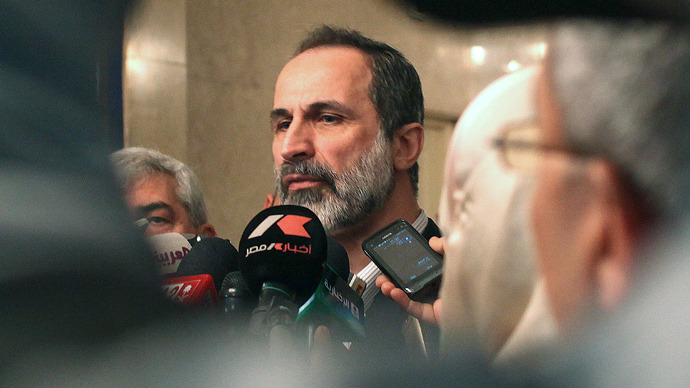
The leaders of the Syrian opposition are set to pick a prime minister to lead a provisional government in rebel-held parts of the country. It comes as the group refuses several international invitations to talks after unabated violence.
The Syrian National Coalition estimates that areas controlled by
the insurgency comprise about half of Syria, and wants to form a
government quickly in order to prevent those areas from falling
into chaos, according to a Friday statement. Coalition leader Walid
al-Bunni said that "there has to be an executive authority
capable of caring for millions of Syrians in the liberated
territories who need water, electricity, security and protection.
Hospitals also have been destroyed by the regime and humanitarian
aid needs to be managed."
The deal was sealed in a two-day meeting in Cairo, and is the
precursor to a March 2 meeting in Istanbul, where the final
decision will be made. The Friday talks involved a consensus
between the various factions of the coalition advocating a quick
formation of a new government, including one comprising the Muslim
Brotherhood, according to Reuters.
An unnamed source added that it remains unclear whether the new
government could immediately begin operating in the captured areas
in the face of Bashar al-Assad’s heavy military superiority across
the country.
There is a notable lack of discipline among rebels, and the failure
to provide insurgent-held areas with a governing body that would
restore order, basic services and electricity could fragment the
opposition and eventually cost them the war, sources close to the
opposition believe. This has been the biggest disadvantage for the
opposition leaders during the two years since the uprising began.
Furthermore, it remains unclear how effective the technocratic
government’s control over Islamist brigades will be, especially if
it can’t operate on the ground.
So far, former Syrian Prime Minister Riad Hijab was among those
offered as a candidate to head the provisional government, but
despite a clear recognition of his talents by many, he did not
gather substantial support – especially from the Muslim Brotherhood
– due to his past in President Assad’s ruling Baath Party.
"Hijab has said the right things and is an administrator. He is
qualified but his history in the regime plays against him," one
coalition member said. A former agricultural minister from the era
of Bashar al-Assad’s father’s rule, Assad Mustafa, is also among
those considered for the post of provisional PM.
No place for dialogue
Meanwhile, violence has been rocking both the capital Damascus and
the ancient city of Aleppo. At least 100 people have been killed
and over 250 wounded in a massive car bomb blast that hit Damascus
on Thursday. The explosion shook a square where pro-government
rallies are usually staged.
The Syrian foreign ministry has blamed the attack on
al-Qaeda-linked "terrorist" groups. The opposition's
Damascus media office says that the Free Syrian Army (FSA) has
"denied responsibility for the blast and blamed it on the
regime." International peace envoy to Syria Lakhdar Brahimi
condemned the attack, saying that nothing could justify such
horrible actions - which amount to war crimes under international
law.”
The envoy called on the UN Security Council last month to set up an
investigative body for “such crimes” in Syria. In an interview
to RT he stressed the unwillingness of the Syrian opposition to
engage in any kind of meaningful discussion with President Assad,
this fact being a major cause for the stalemate in the country.
Meanwhile, a Russian UNSC statement condemning the Damascus
bombings was shot down by Washington, who insisted that the wording
include an attack on the actions of President Assad as well. Moscow
reacted sharply, claiming that Washington seeks to “justify
terrorism.”
In Aleppo on Friday, at least 29 people have been killed and dozens
wounded following three surface-to-surface missile strikes by
government forces – according to a Syrian Observatory for Human
Rights statement to AFP.
The violence has aroused heated criticism from the Syrian
opposition, which in turn chose to boycott a string of
international invitations to talks: the Friends of Syria conference
of international powers in Rome, and the invitations to Moscow and
Washington that were made to opposition coalition leader Mouaz
al-Khatib after his meetings with Russian and American foreign
ministers this month in Munich. The invites followed a repeat
proposal by al-Khatib to negotiate the departure of President Assad
with members of the Syrian government.
Al-Khatib has since been harshly criticized by both Islamist and
liberal members of the opposition for proposing talks with the
government without outlining a clear list of goals. The coalition
continued to press for Assad’s ouster, saying that no progress can
be attained without “the removal of Bashar al-Assad and the
heads of the military and security apparatus responsible for the
decisions that led the country to this stage.” They also
demanded in the statement that any further initiatives to engage
the Syrian government must be agreed with the 12-member leadership
of the opposition coalition.



